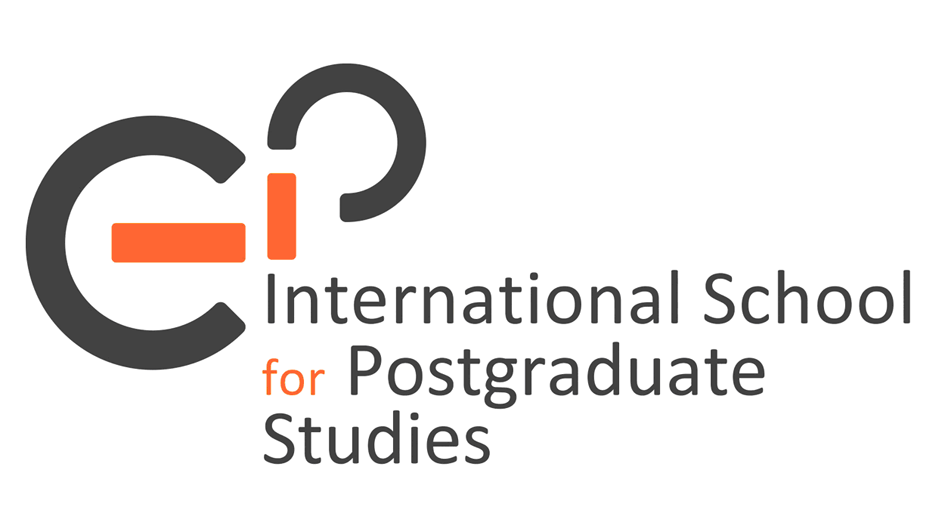
Application
Application
There are two modalities of applications. A general modality for students who just wish to attend the school, and a different modality for students also willing to present their own work during the school. Every accepted student will have their eating expenses during the Summer School covered. Students whose presentations are selected will also have their accommodation covered.
For both of them, a letter of interest and a CV should be sent to filolab@ugr.es.
For the second modality, a 2000 words proposal with a detailed summary of the thesis or a long abstract of the article that you wished to present during the Summer School should also be included in the email.
Important Dates
Deadline for students’ proposals: Extended Deadline May the 25th
Communication of acceptance: May the 30th
Registration will be open from the 1st of June to the 15th of June for accepted students
Polarization and Social Change
June 21 - 24, 2022.
Presentation
The APPLY-FILOLAB International Doctoral Summer School will be held at the Carmen de la Victoria (University of Granada - Granada, Spain).
The summer school will be a 4-day event, and will comprise, amongst other activities, invited talks by Anna Bosco (University of Firenze), Michael Lynch (University of Connecticut), Lilliana Mason (John Hopkins University), and Jason Stanley (Yale University). Participants are encouraged to discuss their own work with the guests and mentors of the School. Thus, applicants to this summer school will be asked to send a brief summary of the material they would like to present during these days. Ideally, this would comprise a synthesis of the doctoral project they are developing, or a particular paper they want to obtain feedback on. The organizing committee will select –in case the number of proposals exceed that of slots– amongst those proposals the ones that seem more suited for the goals of the Summer School. The presentations will be selected by their quality and their proximity to the topics of the lectures. Of course, participants might decide not to present their own work, and instead simply attend the sessions and take part in the discussions. Every accepted student will have their eating expenses during the Summer School covered. Students whose presentations are selected will also have their accommodation covered. The enrolled students, a maximum of 25, will be divided in groups of 3, under the supervision of an APPLY member, in order to work on a brief draft for a paper that will be presented the final evening of the school. The school will finish with brief presentations of the drafts prepared by the groups of students.
Topic
The organizing committee has decided to focus on polarization and social change. Political polarization, the process through which a group’s opinion with respect to a given political issue sets apart from a normal distribution, to form two or more groups with different levels of extremism, has been studied from several sub-disciplines within the past few years. The phenomenon has been approached from a political and social perspective, but some attention has also been paid to the epistemological problems motivated by polarization, as well as some of the linguistic factors involved. Moral and political philosophy, but also epistemology and the philosophy of language, have thus produced key results related to the topic of polarization. Together, they allow us to better understand the phenomenon, and to complement the strategies of detection and depolarization that have been independently developed.
The first studies on polarization come from the realm of sociology and social psychology. These studies focus on how more balanced components of a group tend to adopt riskier attitudes after a conversation with people who are more prone to take risks. The development of these initial studies has been supplemented not only by the aforementioned philosophical contributions, but also by research coming from political science. It is, therefore, a topic that it is simply impossible to tackle without adopting a multidisciplinary approach. This feature of the research on polarization is reflected on the composition of the different teams, and research projects, that support this application. We might be able to find moral and political philosophers, epistemologists, researchers working on the philosophy of language, but also sociologists, and political scientists.
For four days, PhD students will have the chance to meet researchers whose work on polarization is widely known and discussed. Student will not only be able to discuss some of the more recent findings within this area of research, they will also present their own research, and thus receive comments from the invited researchers. The ultimate goal of this summer school is to provide doctoral students with direct access to highly recognized researchers whose work is linked, in one way or another, to the topic of polarization.
The workshop admits of two ways of participation:
- Attendance: general audience of Ph.D. candidates who wish to attend to the three-session workshop
- Presentation: presenters who wish to submit their Ph.D. research project for eventual discussion with specialist professors in the course of the workshop. Prospective presenters must submit an extended abstract of their research (1000 - 1500 words). These abstracts will be considered by the organizing committee of the Doctoral Workshop and on the basis of thematic fit and quality, may be given the chance of being presented and discussed as part of the Workshop sessions. These presentations will be assigned to a particular session according to their topic and presentations slots in the final program.
Methodology
The workshop is conceived as a theoretical/practical encounter where Ph.D. candidates are given the chance to present and discuss their projects with the guest professors as well as with specialized members of our own program and colleagues. The Workshop will have four independent sessions. Each session will feature one of our guest professors.
Sessions will be organized in-person, using the facilities provided by the Carmen de la Victoria (https://carmendelavictoria.ugr.es).
Organizing Committee
Lilian Bermejo Luque, Pedro Francés Gómez, Manuel de Pinedo García, José Luis Moreno Pestaña, Mario Espinoza Pino, Neftalí Villanueva Fernández y Manuel Almagro Holgado.
Invited Scholars
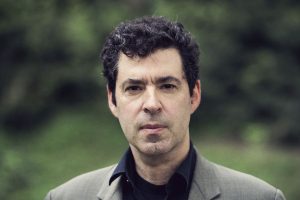
Jason Stanley is Jacob Urowsky Professor of Philosophy at Yale University. He has made contributions to the philosophy of language and epistemology, which often draw upon and influence other fields, including linguistics and cognitive science. Some of his works are (2011) Know How, Oxford: Oxford University Press, (2015) How Propaganda Works, Princeton, NJ: Princeton University Press, and (2018) How Fascism Works: The Politics of Us and Them, London: Penguin.
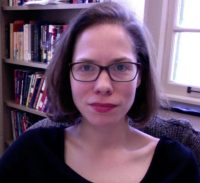
Lilliana Mason is an SNF Agora Institute Associate Professor of Political Science. She is author of (2018) Uncivil Agreement: How Politics Became Our Identity, Chicago: University of Chicago Press. She received her PhD in political psychology from Stony Brook University and her BA in politics from Princeton University. Her research on partisan identity, partisan bias, social sorting, and American social polarization has been published in journals such as American Political Science Review, American Journal of Political Science, Public Opinion Quarterly, and Political Behavior, and featured in media outlets including the New York Times, the Washington Post, CNN, and National Public Radio.
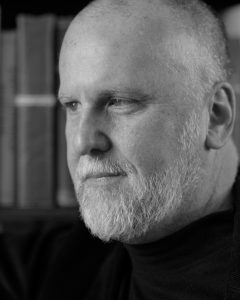
Michael Patrick Lynch is Professor of Philosophy at the University of Connecticut. He is also the director of the University of Connecticut Humanities Institute. His work is well known in the field of the Theory of Truth and has also worked on epistemology, especially epistemological issues related to big data and democracy. Some of his works are: (2009) Truth as one and many, Oxford: Oxford Scholarship Online, (2016) The Internet of Us: Knowing More and Understanding Less in the Age of Big Data, New York: Liveright Publishing, and (2019) Know-It-All Society: Truth and Arrogance in Political Culture, New York: W.W. Norton & Co.
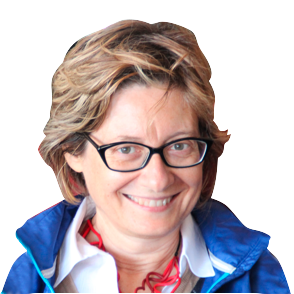
Anna Bosco is Professor of European Politics at the University of Florence. She is also director (with Susannan Verney) of the South European Society and Politics Journal. She is Co-editor of (2007) Party Change in SouthernEurope, UK: Routledge (with Leonardo Morlino), Co-author of (2009) La España de Zapatero: años de cambios, 2004 - 2008, Madrid: Editorial Pablo Iglesias (with Ignacio Sánchez - Cuenca), Co-editor of (2013) Elections in Hard Times: Southern Europe 2010-11, UK: Routledge (with Susannah Verney) and (2019) Crisis Elections, New Contenders and Government Formation: Breaking the Mould in Southern Europe, UK: Routledge (with Susannah Verney).
Expected attendance
The organizing committee has set the number of expected attendees at 20, based on previous experience. However, the number of possible presenters will be set at a maximum of twelve (12) persons.
Who can attend: the workshop has an open and interdisciplinary scope. The main topic as well as the above-mentioned themes and issues, are of interest for philosophers, political scientists, and social psychologists. Previous experience shows that discussion is greatly enriched when the Summer School includes graduate students from several backgrounds. Therefore, Ph.D. candidates not only in Philosophy/Ethics, but also in neighboring areas such a Social Psychology, Sociology/Political Science, other branches of the Humanities, Law, Economy, etc., are welcome.
The workshop is expected to generate a network of contacts for future collaboration and academic exchange.
Program
Program FiloLab Summer School | 2022 by Mario Espinoza Pino on Scribd
Application
There are two application modalities:
-
General attendance – for students who wish to attend the Summer School without presenting their work.
-
Presentation – for students who wish to present their research during the Summer School.
Students whose presentations are selected will receive accommodation and mail support.
Application Requirements
For both modalities, applicants must submit the following documents to filolab@ugr.es:
-
A letter of interest
-
A CV
For the presentation modality, applicants must also include:
-
A 1,000–1,500-word proposal, containing a detailed summary of their thesis or an extended abstract of the article they intend to present.
Important Dates
-
Proposal submission deadline: May 15
-
Notification of acceptance: June 3
-
Registration period for accepted students: June 1–June 15
Registration and fees
There will be a single registration fee of twenty-five Euros (25€) that covers administrative paperwork, course materials, and certificate of participation/presentation.
Contact
For further information, please write to filolab@ugr.es
Apply: New Trends In applied Philosophy. From theoretical philosophy to new challenges of society (RED2018-102695-t)
Where are we
